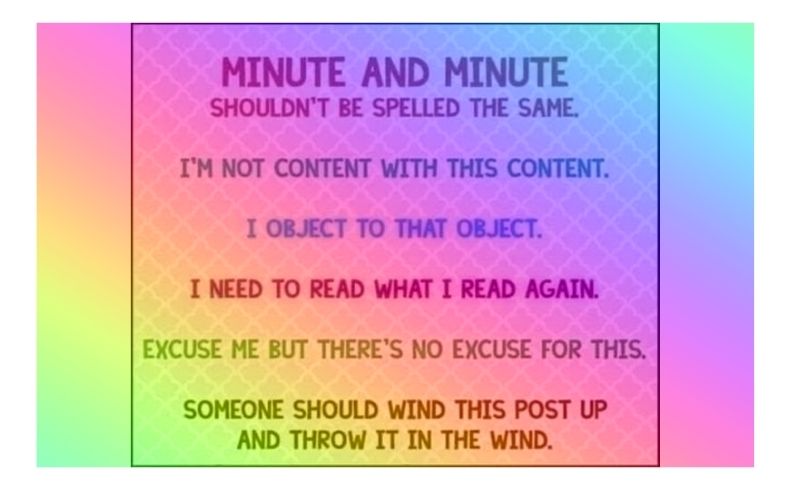
paul navigated his difficulty reading and spelling by learning to learn
The autobiographic vignette below was originally titled “Testing Times”. I wrote this passage in the early months of my (attempted) PhD in 1998. My doctoral research focused on educational inequality and the lessons taught by the “formal” and “informal” curriculum at schools in hard places. This story talks to my continuing challenge with spelling in early 1984. I have changed the names of my peers and the adult in this story.
“What’s she doing?”, Dee asks me as we watch Mrs Gale write a list of words on the chalk board in her impeccable link script.
“Cliff… Sandbank… Sail… River… Net… Map… Waves… Seaweed… Low tide… Worm…”, I read slowly from the board.
“They’re easy words”, Bryce gloats as he begins copying them into his work book.
“For some”, I mumble in my beard.
“No, not for some- for everyone – everyone can learn how to spell, it just takes practice”, Mrs Gale says as she faces me and turns an initial glare into a smile.
“Geezus, she’s older than my Nan and she can still hear everything you say”, Roderick whispers to my left.
“Indeed I can”, Mrs Gale replies as she begins a second list of words, “Indeed I can”.
“See”, Roderick says as he sinks in his chair to the giggles of the class.
“Sailor… Harbour… Pebbles… Buoy… Shipwreck… Lighthouse… Penguin… Ski… Yacht…”, I read the second list in a more panicked tone.
“They’re easy too”, Bryce remarks.
“Yeah-well, words are difficult”, I snort as I rule a red line down the inside margin of my exercise book.
“Now class, who hasn’t started writing these word lists down?”
Hands are raised and then quickly lowered as their owners realise their mistake.
“You should know by now that if it is important enough for me to write on the board, then it is important enough for you to copy it in your exercise books. Okay?”
“What are the words for?”, Roderick asks.
“This Thursday morning and every Thursday from now on we will have a spelling test. I will test Grade 3’s on the first list, and Grade 4’s on both lists. So write them down, take them home and learn them. Any questions?”
In an instant the room is filled with the noise of pencil cases unzipping, bundles of pencils rustling, and 26 small bodies scribbling madly.
“I’ve finished both lists Mrs Gale.”, Bryce reports, “But there is only nine words in the second list- there’s ten in the other”
Mrs Gale turns to face the columns and does a quick count.
“Oh, we can’t have that”, Mrs Gale says admitting her mistake. “Um, what other word can I use?”
“Oh, good one Bryce! Make it difficulter”, I grunt.
“You mean, make it more difficult”, Mrs Gale says as she corrects my grammar.
I shrug my shoulders.
“’Ahh, let’s go with ‘difficult’, no let’s try ‘difficulty’”, Mrs Gale smiles as she adds the word to the bottom of the Grade 4 list.
I roll my eyes and dread the moment where I will have to attempt the spelling of these words on my own.
“I can’t learn these words”, Roderick declares.
I nod in support.
“Of course you can. Tell me, how do I get you to learn the words that you spell wrong in your story writing?”
“Um, Look-Cover-Write-Check”, Roderick responds.
“Exactly. Look at the word, cover it up, write it down, and then check to see if you are right”.
“It’s not always that easy”, I add.
“What do you mean?”
“Like, ‘difficulty’, all the f’s and i’s and l’s and stuff. I get confused”.
“There is only one ‘l’ in difficulty”, Bryce pipes in.
I glare at my gifted mate and then refocus on Mrs Gale who circles our nest of desks.
“Oh, ‘difficulty’ is a fun word to learn how to spell.”
I squint, wanting to believe her, but struggle connecting the act of writing and spelling with fun.
“Mrs D, Mrs I, Mrs F, F, I, Mrs C, Mrs U, Mrs L, T, Y”, Mrs Gale sings with enthusiasm.
The class pause in silence, and then beg her to sing it again.
“Mrs D, Mrs I, Mrs F, F, I, Mrs C, Mrs U, Mrs L, T, Y”
The class giggles as Mrs Gale prances around the class room repeating the silly rhyme.
“Join in with me. Mrs D, Mrs I, Mrs F, F, I, Mrs C, Mrs U, Mrs L, T, Y”
I smile, as I join my class in chorus and commit the rhyme to memory.
“You see, find some way of helping you remember and make learning fun – that’s all it takes”.
“Mrs C, Mrs L, Mrs I, F, F”, Roderick sings out of tune.
Mrs Gale guffs as the class laughs uncontrollably with Roderick as he attempt to sing the first word on the list.
“Almost Roderick – keep trying”.
“You too Paul”, Mrs Gale whispers in my ear and squeezes my shoulder with care. “You can do it. I know you can”.
With that message I set about memorising those twenty words and the hundreds that followed that year. Every week without fail, I painstakingly repeated the ritual of memorising the list of twenty words ready for the Thursday morning test. I would carry the list with me early in the week and read the words over and over again. I would ‘look-cover-write-check’ repeatedly. It was the only way for me to get them to stick in my head. Upon reflection, I believe I learned much more than the six hundred or so words I was required to memorise that year. I learned how to prepare for tests, I learned how to rote learn, and I learned how to manage my nerves in the test situation. Additionally, I learned that I could overcome deficits in my own abilities. Ultimately, I owe much to my parents and those teachers who cared about my development and invested in me.
1982 End of Year Report
…Few children of his age write with so much humour and originality…
1983 Interim Report
…Paul has a very wide vocab which extends beyond his spelling ability. He must train himself to constantly use a dictionary… (Wasn’t I the happiest person in the world when real-time spell checking was integrated into desk top word processors)
1985 End of Year Report
While motivated Paul’s efforts are enormous… Paul’s result in spelling is satisfactory…
1986 Interim Report
…Spelling needs careful effort to extend standard. Punctuation techniques need concerted effort…
1986 End of Year Report
…Comprehension of vocabulary has improved considerably and a richer store of words is noticeable. Spelling has also strengthened. Punctuation needs constant care…
1987 End of Year Report
Paul’s written work this term has been exceptional. His understanding of literature and his ideas are the best I’ve encountered in a Grade 7 student.





